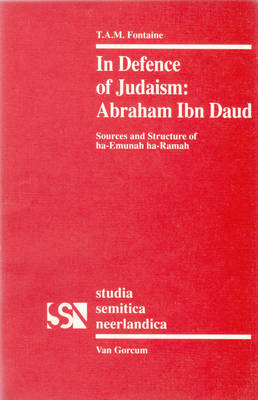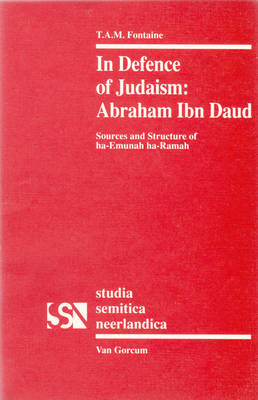
- Afhalen na 1 uur in een winkel met voorraad
- Gratis thuislevering in België vanaf € 30
- Ruim aanbod met 7 miljoen producten
- Afhalen na 1 uur in een winkel met voorraad
- Gratis thuislevering in België vanaf € 30
- Ruim aanbod met 7 miljoen producten
Zoeken
€ 283,95
+ 567 punten
Omschrijving
This study presents a thematic investigation of Ibn Daud's philosophical treatise ha-Emunah ha-Ramah [The Exalted Faith]. It examines the question whether current interpretation is correct in assuming that the thesis is primarily concerned with working out a synthesis between philosophy and religion, or whether, as Ibn Daud indicates at te beginning of the book, it is basically concerned with the problem of free will. In order to answer this question the author examines the structure of Ibn Daud's philosophical work by analysing its topics and their interrelation, and by paying attention to Ibn Daud's use of Biblical verses. Furthermore the study focuses on the Jewish and Islamic sources on which Ibn Daud drew, as well as the way in which he incorporated the philosophy of the Islamic Aristotelians al-Farabi and Ibn Sina into his own thought.
Specificaties
Betrokkenen
- Auteur(s):
- Uitgeverij:
Inhoud
- Aantal bladzijden:
- 348
- Taal:
- Engels
- Reeks:
- Reeksnummer:
- nr. 26
Eigenschappen
- Productcode (EAN):
- 9789023224044
- Verschijningsdatum:
- 1/01/1990
- Uitvoering:
- Paperback
- Formaat:
- Trade paperback (VS)
- Afmetingen:
- 155 mm x 235 mm
- Gewicht:
- 609 g

Alleen bij Standaard Boekhandel
+ 567 punten op je klantenkaart van Standaard Boekhandel
Beoordelingen
We publiceren alleen reviews die voldoen aan de voorwaarden voor reviews. Bekijk onze voorwaarden voor reviews.











